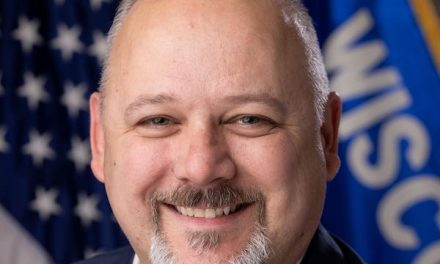
People with disabilities want to see ACA replacement plan that keeps key protections
As Congress takes another step toward repealing the Affordable Care Act (ACA) today, Survival Coalition urges lawmakers to release a replacement plan that preserves key protections for people with disabilities created by the current law before voting on its repeal.
The ACA ended healthcare discrimination based on disability status and resulted in substantial gains in healthcare access and coverage for people with disabilities, including mental illness and other chronic conditions. Before the ACA, many Wisconsinites with disabilities were unable to obtain private insurance, and experienced limited access and dire financial problems due to healthcare costs.
“For the first time in history, health insurance plans can’t deny coverage or charge people higher premiums simply because they have a disability,” said Survival Co-Chair Beth Swedeen. “This landmark protection needs to continue without exception.”
Prior to the ACA, many adults with disabilities did not seek work or left the workforce because they could only get the care they needed through the state’s Medicaid program. The Essential Health Benefit package created by the ACA guarantees that people with disabilities can access vital supports in the private market.
“Adults with disabilities can now seek competitive paying jobs without fear of losing the healthcare coverage that was previously only available to them through Medicaid, which has strict income limits,” said Survival Co Chair Maureen Ryan. “We want to see a replacement plan that continues to give people with disabilities access to the care they need on the private market.”
The ACA also empowers state Medicaid programs to invest in home and community-based long-term care services and move away from expensive institutional care through programs like Community First Choice and Money Follows the Person, which provide funding for states that take steps to serve more people with disabilities and older adults in the community.
“As lawmakers consider an ACA replacement plan and possible major reforms to Medicaid financing, they should continue to incentivize and provide adequate funding for state investments in home and community based long-term care services,” said Survival Co-Chair Kit Kerschensteiner.
Over 200,000 Wisconsinites, including people with disabilities, gained healthcare coverage due to the ACA. These are a few of the stories Survival has heard from concerned families:
Prior to the ACA, a Wisconsin father of a child with a significant disability was told by his employer that the company wanted to change insurance plans but did not want to cover his child. They encouraged him to place his child in a state-run institution. Ultimately, he lost his job, which he believes was related to the company’s desire to change insurance plans. The ACA gave this man and his family protections that ensured they can seek employment anywhere and never worry about not having insurance for their family and their child with complex healthcare needs. — Mukwonago, Wisconsin
A Wisconsin woman is able to take care of her younger brother (who she adopted) who has a developmental disability and a mental illness. She and her brother have worked hard to build up the community supports in his life. Dental and healthcare providers are a part of this support. Without the ACA mandating his coverage under her private insurance, they wouldn’t be able to afford his mental healthcare, dental care and medication, and this would ultimately limit his independent living options. — Menominee, Wisconsin
A young Wisconsin man with a complex health condition wanted to work full time but his employer’s insurance provided only catastrophic coverage and did not cover the medication and care he needs. The ACA allowed him to remain on his family’s insurance until he was 26, then he worked with a broker to purchase coverage that meets his significant medical needs. He has continued to work full time and make a good living. Without the insurance coverage he is able to obtain through the ACA, he would have to apply for disability benefits and could no longer work full time. –Milwaukee, Wisconsin
Survival Coalition wants an ACA replacement plan that assures these protections:
People who gained coverage won’t lose it
Health plans won’t be able to deny coverage, terminate coverage or charge people more due to a disability or other pre-existing condition.
No annual or lifetime limits on coverage
The ACA has gradually lowered prescription costs for those in the Medicare Part D “donut hole” and is set to eliminate the gap altogether by 2020. Affordable prescription drug coverage needs to be maintained.
All health plans must cover Essential Health Benefits, including habilitative and rehabilitative services/devices and mental health and substance use disorder services.
Children can stay on their parents’ plan until age 26
Incentives for home and community based long-term care services
Continued accessibility standards for Diagnostic Medical Equipment so people with disabilities can access preventive healthcare screenings and appropriate diagnostic testing.





